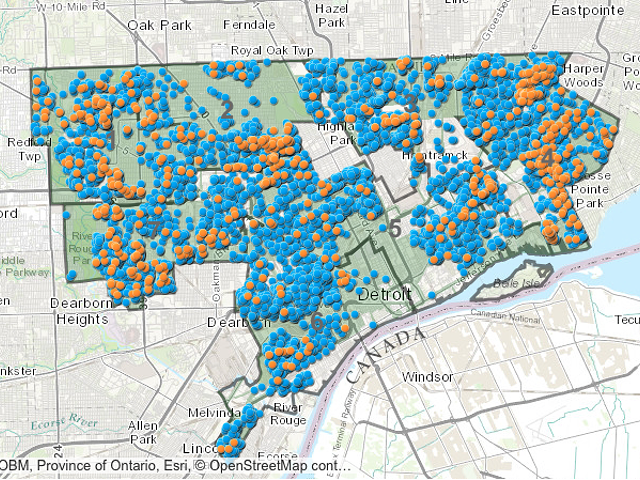Say what you will about Detroit’s business press, but you seldom have to ask questions about its political positioning: It’s snugly ensconced in the boardroom. You can count on Detroit’s business reporters to see things from the point of view of the executive, right down to fireside chats with business leaders and moguls.
Not that individual members of the business press aren’t civic-minded, but they can be counted on to faithfully record a CEO’s complaints about taxes, about unsympathetic government regulators, and about all those meddlesome rules that have their productivity tightly pinioned. To hear these business owners tell it, they could be creating jobs or producing much-needed products or helping pump new life into old buildings, but for those government regulators who seem almost determined to drive them out of business. And the business press will generally give these “job-creators” a fair hearing.
Except when they’re covering the business of medical marijuana. Then the "pro-business" press sounds distinctly like a "pro-government" press.
Take Crain’s, for instance. They have “business” right in the title of their magazine. And they are definitely pro-business. But, lately, when they’re reporting on medical marijuana, the publication takes its cues from government spokespeople.
To be fair, in the past, Crain’s has done some pretty good reporting on the issue. Last year's piece on the anxieties of dispensary owners in the run-up to the passage of tough new zoning rules was especially good.
But take an April piece in the business-oriented magazine entitled “Detroit medical marijuana shops sprout like weeds near the suburbs.” (Har-de-har-har, right?) The piece interviewed many an opponent of dispensaries and interviewed them at length. The piece included a quote from a 70-year-old former police commander who equated running a dispensary with "high-tech dope-pushing.” (Yeah: Surprise, surprise.)
Today’s piece about a crackdown on dispensaries wasn’t much better. At least the April piece had quoted dispensary operators. Today’s piece quoted only the government officials cracking down on the dispensaries.
As those most engaged on the issue are aware, last year Detroit City Councilman James Tate of Northwest Detroit began a discussion about more strongly regulating the dispensaries that had cropped up all over the city. At first, many dispensary owners welcomed the idea — at least until they realized the proposed zoning rules seemed almost designed to run them all out of business.
For instance, liquor stores are required to be 500 feet from schools, churches, or other “special use” locations. But dispensaries are required to be 1,000 feet from them. As we pointed out in our blog “Laugh yourself silly with the city's online dispensary mapper,” it quickly becomes obvious that the zoning ordinance pretty much makes operating a dispensary in Detroit almost impossible, and sets the stage for closing most of them.
Sure, you can open a dispensary. You just have to have a location that’s 1,000 feet from a park, play lot, playfield, playground, recreation center or youth activity center, or church, and 2,000 feet away from any other dispensary, or any other controlled use space such as an arcade, pool hall or party store. (Does it seem like the architects of this zoning law threw in every controlled-use possibility they could? I mean, Detroit probably hasn’t had an arcade since 1987!)
All of this is background that helps tell why the real story isn’t that “noncompliant Detroit marijuana dispensaries to be closed” so much as the city moved the goalposts a few miles down the road and are now asking the dispensaries to kick a field goal or forfeit the game. That’s the kind of context that would go a long way toward helping readers understand whether the regulators are doing their job in good faith, and whether the business owners have valid complaints.
But, hey: Maybe only big business is entitled to that kind of benefit of the doubt.
Detroit's pro-business media slow to embrace medical marijuana?
[
{
"name": "GPT - Leaderboard - Inline - Content",
"component": "35519556",
"insertPoint": "5th",
"startingPoint": "3",
"requiredCountToDisplay": "3",
"maxInsertions": 100
}
]






